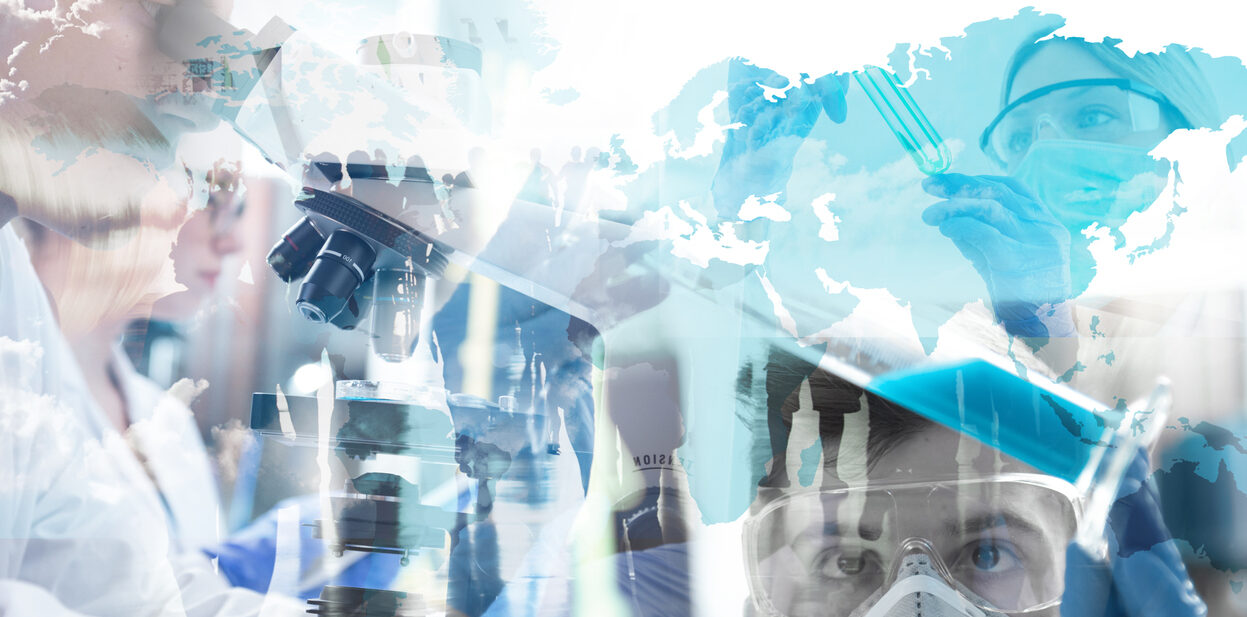
Defining Global Health can be difficult due to its broad and complex nature. However, Beaglehole & Bonita1 have defined it as “working together across borders to improve health for everyone.”
1. Beaglehole R, Bonita R. What is global health? Glob Health Action. 2010 Dec;3(1):5142.
Global Health at NOSM University
To establish priorities, the NOSM University Advisory Group on Global Health and International Relations has developed an institutional focus, vision and mission statements and highlighted important values.
Our Focus
Collaborative partnerships and advocacy towards social accountability and global health equity through health professional education, research and service delivery that links expertise with overcoming local, Northern Ontario health inequity to other, similar global contexts.
Our Goals
- Find international partners
- Offer global health opportunities and exchanges for learners and faculty
- Collaborate on research
- Work toward global health equity
Vision
Advancing global health equity through social accountability, advocacy and innovative health professional education and research from Northern Ontario.
Mission
To improve global health equity through collaborative partnerships and by sharing expertise in social accountability, innovative health professional education and research for Northern, rural and remote communities and Indigenous and Francophone populations.
Values
Social Accountability & the Guiding Values of Relevance, Quality, Cost-Effectiveness, Equity
NOSM University’s Global Health identity is based on the WHO’s framework for social accountability. This means that the University’s Global Health work should be guided by values such as relevance, quality, cost-effectiveness, and equity and that the University engages with the community and partners to decide what actions to take. Social accountability requires NOSM University to balance its responsibility to Northern Ontario with its goal of improving global health equity.
Guiding Social Accountability Values
Relevance: directing efforts towards addressing important, locally relevant problems of those who are the most marginalized, underserved and who experience the greatest inequity with local resources.
Quality: optimizing any health-related services (education, research, healthcare) to be comprehensive, evidence-based, to expected professional and accreditation standards and that account for social and cultural contexts.
Cost-Effectiveness: having the greatest impact while using the least amount of available resources.
Equity: helping to create fair and just opportunities for all, where the degree of available opportunity relates directly to specific needs or abilities and where services are delivered free from discrimination of any kind.
Community Engagement
Prioritizing and establishing proactive, continual partnerships with the community, in all global health activities, to gather information that will be used in the decision-making processes and moving beyond ‘informing, consulting and involving’ towards collaboration and empowerment.
Meaningful Partnerships
NOSM University will collaborate with other organizations and institutions through mutually defined agreements. Partnerships should strive to involve the six key stakeholder groups identified by the WHO’s Partnership Pentagram: policy-makers, health administrators, academic institutions, health professionals, community, and linked sectors (agencies that govern resources affecting social determinants of health). The goal is to create comprehensive and empowering partnerships.
Reciprocity
Respect and Inclusiveness
Respect for diversity on social, demographic, economic, regional, religious, sexual or gender orientations, political, physical abilities, gender, ethnic or cultural backgrounds that are seen or unseen must be accounted for. All partner organizations, their learners, faculty or delegates should feel a sense of inclusiveness with NOSM University.
Innovation
NOSM University will continue to realize its vision of ‘Innovative Education and Research for a Healthier North’ through its Global Health activities, but also help innovate in other Global contexts and contribute to Global Health equity through this innovation.

